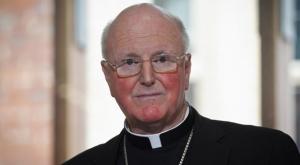A gospel that offers non-Christians a bland religious mono-culture will be justifiably rejected as irrelevant. If we are serious about reaching the Nones with the gospel we will need to invite them into the center of our church life; bringing their world, their worldview, and their complex life experience. And changing ours.
In a recent blog Brian McLaren offered anecdotal evidence that he effective exclusivism of almost all Christian churches is a turnoff to young Americans. I hear the same thing from my students at Perkins and at SMU. An increasing number of American Christians have friendships and partnerships with people of many religions and cultures. Yet even churches that espouse some form of theological pluralism or universalism don’t actually engage the pluralistic character of the society around them. Christian churches are largely mono-religious islands in a sea of religious diversity.
If the Nones can even be persuaded to visit these mono-cultural churches they discover a social space that is alien not because it is religious, but because it isn’t really religious enough. It doesn’t look like their richly diverse world, or even acknowledge that such a world exists. In part this is an old problem of cultural and racial segregation perpetuated in the church. But even more it is a failure to embrace a diversity of spiritualities, of different ways of faithfully following Christ.
Which makes it quite different from the churches we read about in the New Testament. If those churches were difficult (in an exciting way) it was because their members came out of a variety of religious backgrounds, and a richly pluralistic social experience, and were exploring together what it meant to have encountered the gospel of Christ.
At least three places in the New Testament we have evidence of how the apostles struggled to understand the relationship of the nascent church to the culture around it. (Acts 10:15, I Corinthians 10:25-26, I Tim 4;4-5) The tension is clear: On one hand all things come from God and if they are beneficial should be received with thanksgiving. On the other hand there are many who associate certain objects and practices with idolatrous and even demonic religion. Early churches had to navigate the minefield of accepting God’s bounty yet not weakening the faith of those for whom Christ was salvation from their old culture and religion.
Yet at least they tried to navigate it. They didn’t reject out of hand everything that wasn’t part of the Jewish tradition.
And historically we can see this in early emergent Christianity. The sacrament of Holy Communion wasn’t just a reiteration of the Jewish Passover, but took on powerful elements of Greek religious feasts. And as Christianity moved beyond the Mediterranean world it would, with thanksgiving and prayer, adopt a whole variety of pre-Christian religious practices (Christmas trees, Easter eggs) to the expression of the truth of Christ.
Thus the early church was a social setting in which pre-Christians had something of their own religious experience to contribute. Even as they were learning what it means to follow Christ, they were shaping from their own experience what an emergent Christian spirituality would mean.
And this was because, as the New Testament shows, the leaders of the early church were capable of exploring how Christian discipleship could draw on the richness of the world around them.
The implications of this are two-fold. First – those in training for Christian leadership must have the tools and inclination to understand the cultural and religious diversity of the world of the Nones. This extends well beyond the economic and social analysis already present in our seminaries, or the kinds of sociological studies that seek to characterize generational groups such as “Gen Xers” or “Millennials.” Even the student of non-Christian religions will need to understand them as the Nones do; as potential sources of spiritual insight and fulfillment. We need a seminary curriculum that is relevant to Christian leadership in our increasingly non-Christian society.
The second implication relates to existing churches. Contemporary American churches rarely take seriously the idea that a new Christian, a Christian who isn’t fully formed in the faith, has something to contribute to the spiritual life of the church. Instead the Nones are treated like a market segment which the church can reach with the same product in a different package: a package put on a shelf well away from “traditional” worship and Sunday school to avoid possible contamination.
Even the appropriately named “emergent church” movement is in the process of being co-opted and marginalized by the major denominations. Co-opted as young pastors are sent away to form new congregations following emergent church models, in the hope that they will succeed where all other evangelization efforts have failed. Marginalized as the emerging spirituality of these congregations isn’t allowed to touch on either the traditional or contemporary worship of existing congregations.
If we are serious about the future of Christianity in the US we will need to invite the the Nones into the center of our church life; bringing their world, their worldview, and their complex life experience. And changing ours.











